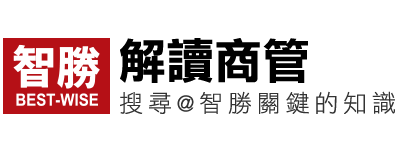Hot News
| 中文篇名 |
中國因素影響下臺灣媒體人的日常抵抗:對民主防衛的啟示 | |
|---|---|---|
| 英文篇名 |
Taiwanese Journalists’ Everyday Resistance Against China’s Influence: An Implication for Defensive Democracy | |
| 作者 | ||
| 中文摘要 |
國際社會日益關注中國崛起對全球民主發展的影響,許多研究已指出「中國因素」對臺灣媒體與新聞自由構成潛在衝擊,但卻較少探討臺灣新聞工作者如何回應中國因素的影響。本研究嘗試基於問卷調查與深度訪談結果,初步歸納臺灣新聞工作者對中國因素影響的認知、評價及抵抗策略。研究發現:在臺灣新聞媒體圈,中國因素導致的自我審查與置入行銷相當普遍,但面對這些中國因素的影響,大部分受訪者表達既不認同也無法接受,此時新聞工作者最常採取的抵抗策略依序包括:日常抵抗、內部抵抗、離開公司或媒體,以及外部抵抗。儘管上述行動受到組織內外不同制度條件的制約,但都根源於行動者共享的內在驅動力,亦即對新聞專業價值的信仰與堅持。在現今中國「銳實力」向外擴張的脈絡下,本研究主張臺灣應持續以價值理念為基底的「軟實力」作為回應,期能為「民主防衛機制」的建構提供若干啟示。 | |
| 英文摘要 |
Growing concerns about the impact of China’s rise on the development of global democracy have risen in the international society. Existing studies mainly focused on the impact of the “China factor” on Taiwan’s media and press freedom, but paid less attention to how Taiwanese journalists respond. This article, based on survey and interview data, attempts to provide a preliminary summary for Taiwanese journalists’ cognition, evaluation, and resistance strategies towards China’s impact. It is found that Beijing-induced practices such as self-censorship and embedded marketing are prevalent in Taiwan’s media sector. Most journalists neither identified with nor accepted these practices. The strategies they took to resist include everyday resistance, internal resistance, withdrawing from the company or the media, and external resistance sequentially. Although the chosen strategy might be affected by institutional factors inside or outside media organizations, they all originated from the same intrinsic motivation – the beliefs in the profession of journalism. Hence, this article suggests that Taiwan needs to build a defensive democracy mechanism based upon value-laden “soft power,” in response to China’s aggressively expanding “sharp power.” | |
| 關鍵詞 |
中國因素、日常抵抗、自我審查、置入行銷、銳實力、China factor、everyday resistance、self-censorship、embedded marketing、sharp power | |
| 刊名 | ||
| 期數 | ||
| 起訖頁 |
041-079 | |
| 出版單位 |
國立中正大學政治學系 | |
| DOI | ||
| QRCode |
| |
| 上一篇 | ||
| 下一篇 |



